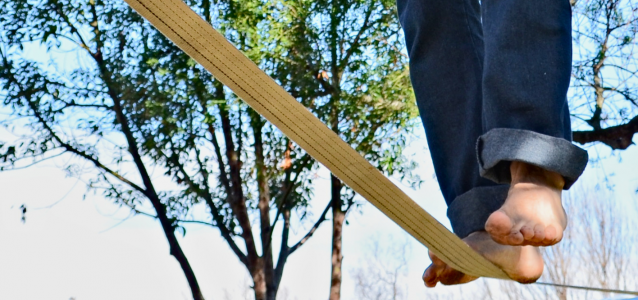(A reaction to “Climate scientists must not advocate particular policies“)
Tasmin Edwards states: “But I care more about restoring trust in science than about calling people to action; more about improving public understanding of science so society can make better-informed decisions, than about making people’s decisions for them. Science doesn’t tell us the answer to our problems. Neither should scientists.”
Please tell me: on what grounds should I abdicate my responsibility to speak out as a member of society?
The scientist is often perceived as a breed apart … equal parts eccentric and nerd, with tunnel vision myopia communicating in incomprehensible jargon. OK, so there are some cool scientists, but they’re often seen as cool because they play to the stereotype. Actually most scientists are much like everyone, albeit with an obscure language set and inside jokes that no one else understands.
But there is a problem when it comes to climate change. As long as the nerdish focus of the scientist remains esoteric, nobody worries about treating them like another species (except perhaps their spouses). This attitude now plays out in the climate change arena; we speak of “bridging the science-society divide”, and of scientists engaging with “stakeholders”, as if the scientists live a separate life. It’s almost like multiple species symbiotically co-habiting. The scientist feeds facts to others, such as the engineer who then feeds that fundamental societal need for ipads, ipods, iphones, i-everything in a society that is grossly I-centric.
However, the reality is that scientists are in society, not outside looking in, not even on the edge. Scientists make up society along with everyone else. Why should their responsibilities be any different?
There is a prevalent attitude that, when it comes to climate change, scientists must simply report the facts and keep their noses out of everything else. But if I am a member of society first, and a scientist second, why should I not engage in advocacy, in activism, in action informed by my understanding of the consequences of climate change? By what authority can anyone say I should not?
Many, especially climate change denialists, would argue that scientists filter their research through personal opinion to get the answers they desire. Some people think that for a scientist to be an advocate means turning science bad. However, the reality is most often the reverse: our personal perspective of society informs our research, highlights the priority gaps in knowledge. Then we look at the data as objectively as a human can, all in the hope that the consequences won’t be as bad as our expert judgement would first suggest. Scientists, perhaps more than any other strand of society, know the meaning of “objective”. So when we gain understanding, as a member of society we want to communicate it. But suddenly the denialists (and some others) shout “shut up and just be a scientist, we don’t trust your opinions”.
I wonder what it would be like if we said that to our doctor? “You have cancer and now you need to …” “Shut up, don’t tell me what I should do”
Well, in such a circumstances I’d be tempted to shut up and let the patient learn the consequences of his stupidity. Why is it any different with climate change? I suggest that for many (even some scientists) it’s because the threat is not perceived as personally imminent, they don’t want to have the zone of comfort disturbed. While we all have intuitive values, many have little reasoned sense of personal values, and so we feel little personal responsibility for a global problem. Of course there’s more to it than that, for example engineers may see the issue as an engineering problem in need of a technological solution. But regardless, at the heart of the matter is the fact that climate change threatens our way of life, requires society to change, and We Don’t Like That.
So here’s a call for scientists to speak as members of society with equal responsibility … be an advocate for change because you’re a member of society, despite being a scientist. Don’t do advocacy through science, but do advocacy as a response informed by the science, as a full member of society and recognizing values for what they are.
In any situation where one argues for a particular outcome, a legitimate question is “by what right, by what authority?”. For the scientists it is not because I’m better, more powerful, more beautiful, or more rich (generally the scientist is none of those!). It’s because I have some facts you might not know, and which I think you really, really should be aware of, and oh, by the way I have a vote on society’s response to this as well.
It’s a fine line for scientists to walk, and we’ll certainly make some mistakes along the way. But if scientists are not advocates then we deprive society of an important informed voice. Who else will society also be listening to? Business? The banks? Politicians? Perhaps even the armchair ignorance of denialists? At the end of the day the climate system is complex and nuanced. To leave the interpretation of the message exclusively to non-experts is an irresponsibility of the highest degree that affects our legacy across the generations, and abdicates one’s responsibility as a member of society.

Brendan Argent
I like that you use walking a slack line (as opposed to a tight rope) as the analogously difficult task. Its not just “a fine line”, but a moving one, that responds to your actions.